Why does one person survive and another die? Such outcomes aren’t rare and often happen even when two similar people are subject to the same survival ordeal. Writing about survival full-time for the past 12 years or so has enabled me to research thousands of survival ordeals, and more often than knowledge, skills, or physical fitness, the will to survive determines who lives and who does not.
Survival of the Fittest?
Unless fitness means being adaptable and never giving up, you don’t have to study survival long to learn that it’s not the fittest who survive after all. Unless perhaps, Darwin included psychological fitness in his appraisal. Yet I can see why one might mistake physiological fitness for psychological fitness. The two are inextricably linked. When a survivor loses the will to survive, loss of physical health and then life itself, quickly follow.
When I consider survival psychology and the will to survive, I am reminded of the survival ordeal of José Salvador Alvarenga and his mate Ezequiel Córdoba. The two longline fishermen set out to sea to fish off the Pacific coast of Mexico on November 17, 2012. Their skiff was disabled by a storm and drifted between 5,500 and 6,700 miles until it washed ashore in Ebon Atoll in the Solomon Islands on January 30th, 2014, 428 days later. Upon hearing about it, it was difficult to believe that anyone could survive such a strenuous ordeal, but after careful research and interviewing, it became evident, both that it was possible, and that he could not have faked it.
How does a survivor survive well over a year adrift at sea in a 23’ open fiberglass skiff with only a large icebox for shelter after nearly all your gear is washed overboard or cut away? Unfortunately, Mr. Córdoba didn’t. In 2005, a slightly larger boat crewed by five, had a similar experience and drifted along much the same course but were rescued after a little over 9 months. Despite having a slightly larger vessel and retaining equipment, including fishing gear, they still lost two crew members, one of whom owned the vessel. Like Córdoba, they couldn’t or wouldn’t eat food raw, and succumbed to starvation.
Salvador had some survival experience. He claimed to have fled violence in El Salvador on foot, backpacking, camping, hunting, and fishing his way up through Guatemala just into Mexico where he stopped in a small village named Costa Azul. There he said he swept the sidewalks, a fisherman let him mend nets and he eventually worked his way up to captaining a small fishing skiff. At the time, he was accustomed to living in relative poverty and intimately knew where his food came from, but he was semi-literate. So, he was accustomed to solving problems without reaching for his wallet but had no formal survival training.
According to Salvador, Mr. Córdoba died because he decided to stop eating. The two men learned to hold perfectly still until birds would land on the boat and could be caught. After about four months at sea, he found small sea snake in the belly of a bird he was eating. He became sick from eating the birds raw and was convinced he had been poisoned and would die if he continued to eat birds. Having given up and stopped eating, his health deteriorated rapidly, and he died.
Córdoba’s death was hard on Salvador, who claimed he contemplated suicide for days afterward and spoke to the corpse before eventually committing it to the sea.
Salvador claimed he couldn’t kill himself because his Christian faith prohibited it. Finding strength in faith is a common thread throughout many survival ordeals, as is the desire of parents to survive to protect and care for their children, fighting to survive to help friends or simply fellow human beings.
I have tremendous respect for survivors, and a survival ordeal doesn’t have to last weeks, months or years to require a strong will to survive. Until the last 150 years or so, a strong will to survive was required to survive to adulthood, and this exposure to hardship made people stronger. Today’s parents and schools aren’t doing children any favors when the protect them from anything and everything. Children must experience some degree of austerity and difficulty in life to develop problem solving skills and to learn to adapt. So do adults.
The 10-80-10 Rule
An English psychologist named John Leach made a career of studying survival psychology. You could even say he wrote the book on it. He gave it the apt, if unimaginative, title: Survival Psychology.
Based on his study disasters, he concluded that only 10% of people did anything to help in a meaningful way. A full 80% of people stood around, “like alabaster statues”. And the last 10% panicked and acted in a way that impeded the rescue effort and endangered themselves and others.
Other psychologists argue that fewer than 10% panic, but the precise numbers aren’t as important as the overall picture that the numbers represent. The 80% who freeze do so more out of normalcy bias than analysis paralysis. They freeze because they’re stuck in a denial loop thinking, “This can’t be happening!”, “Am I dreaming? I must be dreaming!”
If you’ve ever witnessed a disaster or participated in emergency response efforts, your own observations likely bear out Dr Leach’s observations. Mine certainly do. And so did those of the ancient Greek philosopher Heraclitus. You could call his observation the 10-80-9-1 rule, upon which, Leach’s 10/80/10 rule must surely be based:
“Out of every one-hundred men, ten shouldn’t even be there, eighty are just targets, nine are the real fighters, and we are lucky to have them, for they make the battle. Ah, but the one, one is a warrior and he will bring the others back.”
Heraclitus said that 2,600 years ago, yet it rings remarkably true today.
So, which group do you think you would fall into? And do you believe that people can move from one group to another if they are trained, educated, and conditioned? This is an old philosophical debate that rage on to this day. Are we just wired the way we are and that’s that? Or are we capable of self-improvement?
I don’t think people really know how they’ll respond when things go sideways until they experience it a few times. I’m sure we’ve all seen someone lose it over some event that barely raised our pulse. But I also believe that healthy human beings are capable of training ourselves to respond differently to virtually any stimulus. I don’t believe that all we can ever hope to be is the sum of the genetic, environmental, and psychic deterministic variables that initially shaped us early in life.
I do believe that determinism can explain some behaviors some of the time. The science that supports it was performed on animals and sick people. If you want to learn what we are capable of, you must also study healthy and even exceptional people. Studying exceptional people reveals abundant examples of people like Salvador who overcame the “impossible.”
“Vanquishing” Fear
Humans and animals experience fear because it helps us focus on the threat at hand, boosts blood flow to the large muscle groups and to the brain, bumps up our blood pressure, suppresses pain, and gives us a shot of energy.
For all the evolved advantages of fear response, it is not without disadvantages in the modern world. Sometimes we experience tunnel vision and/or tunnel hearing as we focus on what we perceive to be the greatest threat. Survivors also often report a loss of fine motor coordination, which can make it difficult to operate firearms and safety buckles.
Fear does not need to be vanquished, so much as leveraged. In Deep Survival, Laurence Gonzales wrote, “Turning fear into focus is the first act of a survivor.” (Laurence Gonzales, Deep Survival: Who Lives, Who Dies, and Why, 2005). Survivors often describe feeling as if the world moving in slow motion as their minds focused on the threats they faced.
Addressing the subject of fear, Gonzales referenced another maritime survival story involving a man adrift at sea. This incident took place in the Atlantic and the survivor was Steven Callahan, who survived 76 days adrift in a life raft. Mr. Callahan awoke to find his small home-built sailboat quickly filling with water. He was initially unable to free a duffle bag of emergency supplies but was able to inflate his life raft. With his boat quickly sinking, he took the risk of returning to his flooded and quickly sinking boat to retrieve his supply duffle.
About Callahan’s gamble, Gonzales observed the following, “He had just saved his life by risking it, which is the essential task of every organism. No risk, no reward. No risk, no life.” (Laurence Gonzales, Deep Survival: Who Lives, Who Dies, and Why, 2005)
Of course, risk isn’t quite that simple is it? Risk must be calculated but fear must not factor in. Vanquishing fear does not mean to never experience fear. It means that we must make accurate risk calculations even when we experience fear.


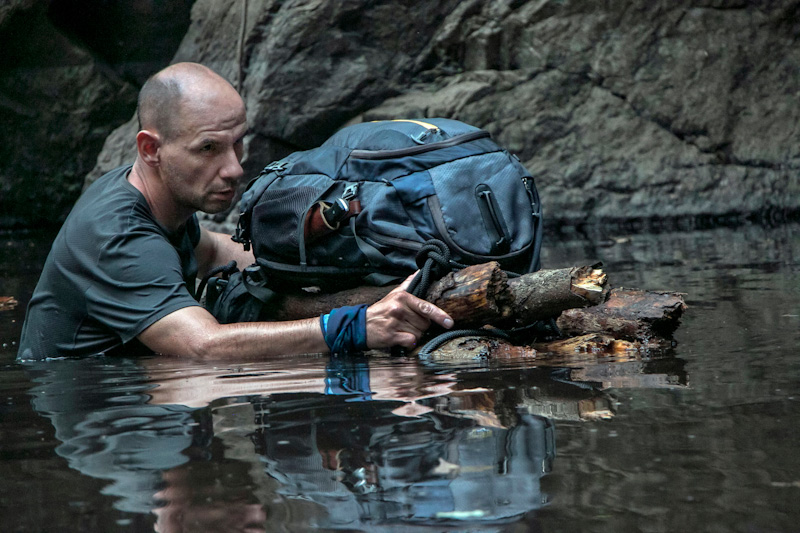
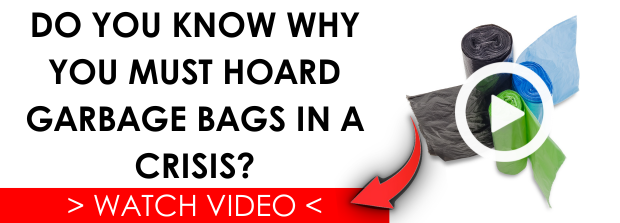
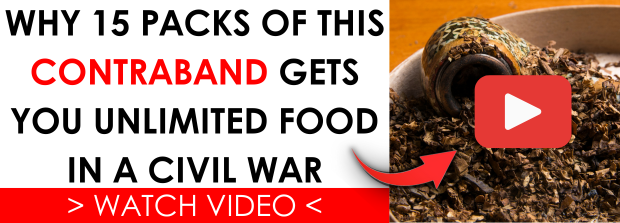
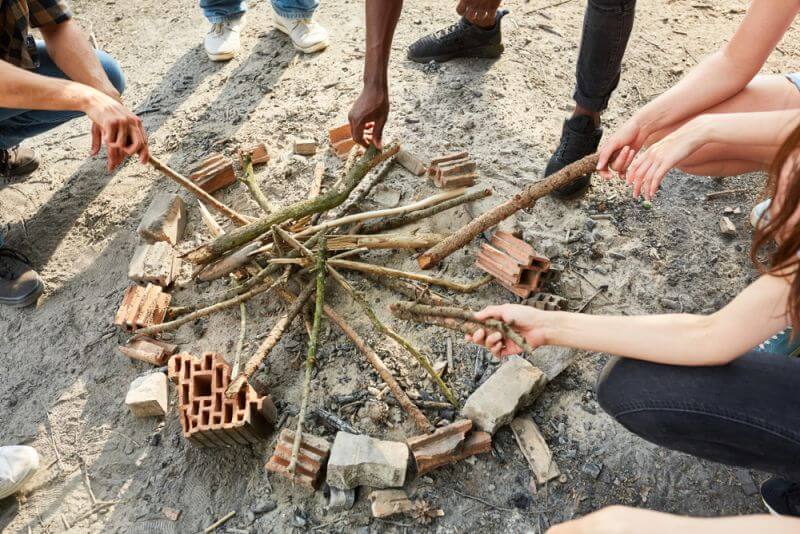
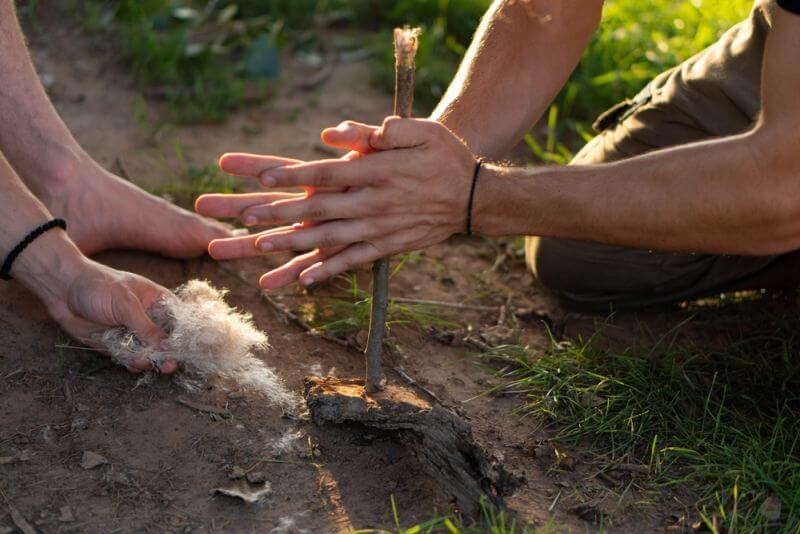

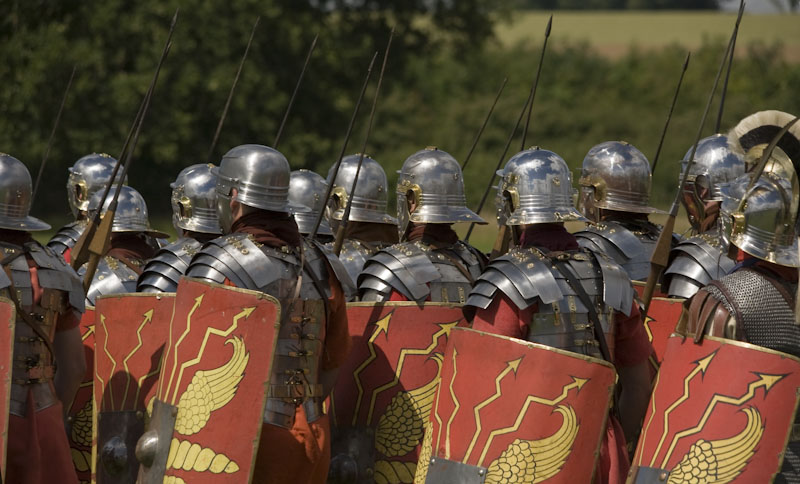

john silvers | June 5, 2023
|
Worldwide response to the Covid Plandemic was enough proof to me that most will choose to remain in denial mode till it’s too late to save themselves. They will submit to loss of freedom and will get in the exchange some measure of the continuation of the standard of living that they have become accustomed.
There are a sufficient number of proactive individuals out there to give hope.
This recent attack on humanity has galvanized me to seek an Intentional Community of like minded individuals dedicated to self sufficiency,
What’s the time honored saying about this: “If you want to go fast, go alone. If you want to go far, go together.
Anyone know of established or forming communities dedicated to the ideal of freedom and self sufficiency?
Cache Valley Prepper | June 12, 2023
|
Couldn’t agree more. We are social animals and have a hard time surviving without the synergies provided by banding together. That’s why Ishi (the last Native American to live entirely off the land) walked out of the hills in 1911.
As a nation, we don’t prepare for a given threat anymore until after it happens. This wasn’t always the case. The federal government prepares to ensure it’s own survival, but there’s nothing for the people. Perhaps that’s just as well. I don’t want to hand my emergency planning over to the feds. It seems they have the reverse Midas touch. Everything they touch turns to crap.
You might check on survialistboards.com.or you could try Dr. Drew Miller at Fortitude Ranch. He mentioned he was doing something like that but you had to buy in. I know there are others that cater to the rich. But you could always relocate to an area where there are a lot of survivalists and join a group. Feel free to email me at cachevalleyprepper at gmail.com. There are books on forming groups as well. I think Charlie Hogwood wrote one on mutual assistance groups.
radarphos | June 6, 2023
|
I love every one of your articles, Cache! I became a Prepper 25-years after what caused me to become a Prepper (Desert Shield, Storm and aftermath). But the ultimate cause of me becoming a Prepper was being perpetually ashamed of myself, when staring at a desert with nothing green growing for hundreds of miles and no standing water. I would tell myself every day that if my Uncle Sam did not bring the beans (food and water) and bullets (security) I would be dead within two days there; and I have never forgotten that I was a dependent and not self-reliant. Plus I was a brand new 56-alpha with no prior military and only six months post time when informed we were going. Even worse I arrived as a no-nothing CPT because of advanced civilian education beyond 56-A training. So I was a walking dip-stick, until I rapidly set up a Mass-Casualty Divarty host-site within an hour of the Luby’s Restaurant Massacre. But no one in Divarty was affected, so that passed quickly.
Personal shame at lacking knowledge, skills and abilities suitable for tasks at hand haunted me then and still does today—that has permanently imprinted me. I would suggest that nearly no-one in USA takes anything seriously until they have been imprinted to become serious (and even the birth of a child can do that).
During the 25 years I was not prepping I was working and raising family. But in the combat theatre I felt ashamed that from a readiness-Prepper-viewpoint I was NO GOOD TO MYSELF NOR MY FAMILY. I didn’t start serious prepping until 25 years later (after my kids were raised). It began the next day after Obama fired off two nuclear capable missiles over San Diego and towards N. Korea during an “easy to see” Civil Twilight Dusk. The next day I dropped working on a license and began full-time prepping.
Prepping is really a life-long task experience for increased readiness for any (actually multiple) hazard scenarios that accompany any disaster. I finally decided to stop being ashamed of myself and my ignorance; and I decided to tackle ‘out of home survival’ in my four-season state because the ultimate hardship, for which one cannot be ready is not so much indoors, but outdoors (everything else being equal).
There is a story, long told, about a Potter who made a pot and after it was finished he decided to repurpose it, so he crushed it down to dust, then used the dust to repurpose a new pot that perfectly satisfied him. Ultimately in that pot’s crushing experience it was imprinted with a new function and purpose. So ultimately people have a choice to re-purpose themselves in purposefully needful ways, OR to perpetrate themselves as they are. Imprinting involves being crushed in some way. My opinion is that the lack of imprinting implies a propensity towards perpetration (and that does not have to be bad, but it sure could become so).
My dad was imprinted the day after Pearl Harbor (but that wasn’t the first time), when he joined and became a first-seat bomber and reconnaissance pilot; and because they had cameras, his Wing was the first to film Buchenwald Auschwitz. He brought back hundreds of pictures (copies, not the first originals that went to Command). Auschwitz broke him, imprinted him, but he didn’t quit anything; he just kept plodding along.
Both the desert and The Storm imprinted me in a way I could not “shake off” even 25-years later. I haven’t quit either, because there is another generation in the relay-race of life that has not been imprinted yet in their most productive years; and if they are abandoned they will perpetrate what they know to the potential demise of themselves and others.
Cache Valley Prepper | June 12, 2023
|
Radarphos,
Thank you for the kind words, for sharing your story, and for your service!
It usually takes a paradigm shift to motivate people to make big changes. Our attitudes and behaviors flow out of our vision, so once our vision is changed, everything else naturally comes in line with that. Becoming a parent and becoming aware of threats has certainly helped motivate me to work on my own preparedness.
Kind Regards,
Cache
MIKKE | May 5, 2024
|
Pretty sure that that term, “Survival Of The Fittest”, was not concerned, wholly with physical fitness?
It is concerned more with the fitness to survive. If you have not taken the steps necessary to get by in hard times then you are probably NOT FIT to survive?